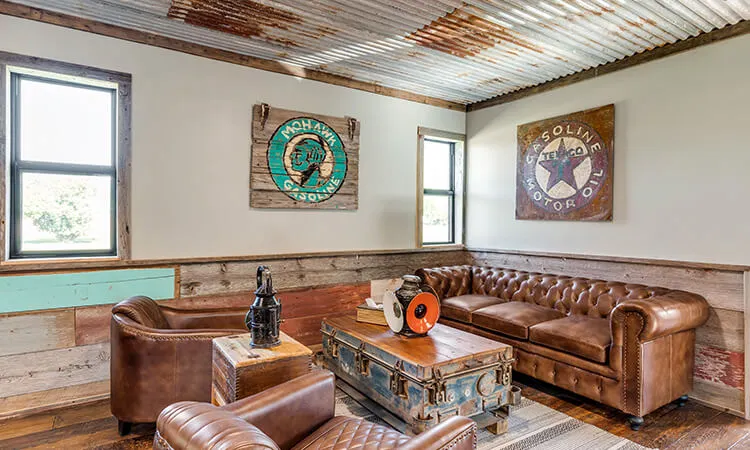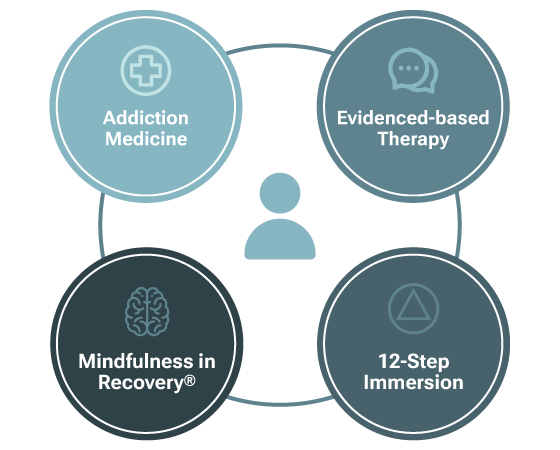Drug Addiction Treatment Center & Inpatient Rehab Program At Renewal Lodge in Texas
Renewal Lodge by Burning Tree is more than an addiction treatment center. We believe that effective substance abuse treatment requires an individualized approach, effective mental health counseling, and access to the skills and tools necessary to lead healthy, happy, well-adjusted lives.

Short-Term 30–90 Day Residential Drug Rehab
Renewal Lodge’s inpatient drug rehab program emphasizes the treatment of mind, body, and spirit together. We also place a significant focus on family.
Our approach to treating substance abuse recognizes that those affected by addiction are not limited to the person seeking treatment. We provide a host of services directed towards increased family engagement including weekly updates, collaborative discharge planning, and an intensive 2-day family program led by our CEO, Peter Piraino, LMSW, and Family Program Director, Doug Wade, LMFT.

"One of the things we do best is offer hope for families who believe their loved one cannot be helped."
Peter Piraino, LMSW, LCDC, LISAC
We Treat All Kinds of Advanced Addictions
The short-term substance abuse treatment program at Renewal Lodge a comprehensive, engaging experience away from distractions and social pressures. Our clinical team is highly trained and experienced with all kinds of substance abuse issues.
We Make High-Quality Drug Rehab Accessible & Affordable
Starting with Burning Tree’s founder, David Elliott, Renewal Lodge was envisioned as the nation’s leader in affordable, high-quality substance abuse treatment.
Today, our Executive Clinical Director and CEO, Peter Piraino, LMSW extends that promise by ensuring that Renewal Lodge remains covered by as many insurance carriers as possible. Our pledge to offer affordable treatment is more than just a promise, it is a way of life.


Our Drug Rehab Program Emphasizes Evidence-Based Treatments
The Renewal Lodge program was founded on Burning Tree’s philosophy of “creating a life of excellence beyond sobriety.” We incorporate addiction medicine, evidence-based therapy, mindfulness and the 12 Steps to bring about whole-person healing.
With nearly 25 years of experience in the substance abuse healthcare space, Renewal Lodge by Burning Tree is the Nation’s Only Mindfulness In Recovery (MIR)® Program, and the first of its kind to offer both Substance Abuse and Mental Health treatment under one roof.
12-Step Immersion
We emphasize the adoption of an immersive 12-step lifestyle, one that includes the empathy, community and accountability so distinctly lacking in a life of addiction. At Renewal Lodge, the 12 steps serve to enact a spiritual awakening, instill a sense of higher purpose and rebuild connections with others.
Mindfulness in Recovery (MIR)®
Practicing mindfulness encourages purposeful thoughts and actions — an essential component of substance abuse recovery. Coordinated with evidence-based clinical care, addiction medicine, and dual diagnosis substance abuse treatment, we’ve found mindfulness to be a powerful tool that helps our clients achieve significant emotional, mental, and spiritual breakthroughs.
Individualized Treatment Plans
Treatment is most effective when adapted to the individual’s unique needs. At Renewal Lodge, we evaluate each client’s emotional, physical, social and psychological needs to develop more customized treatment plans. By personalizing the care we offer, our clients achieve better recovery outcomes.


"Offering hope, skillful direction, and an individualized plan that supports long-term recovery are primary objectives of the Renewal Lodge program."
Doug Wade, LMFT, Family Program Director

“Without a doubt one of the best treatment centers in the country. If you want to live and are willing to do so by any means then this is the place.”
Our Rehab Clients Come From Cities All Across The State of Texas & Beyond
Renewal Lodge serves and welcomes our clients from all corners of the Nation. Individuals from more than 22 US states have experienced our unique approach to alcohol and substance abuse treatment. Below are just a few of the many cities we serve across Texas.




